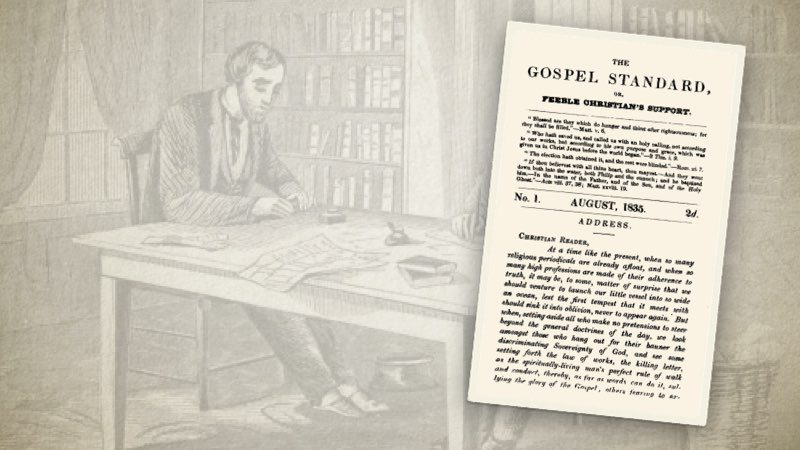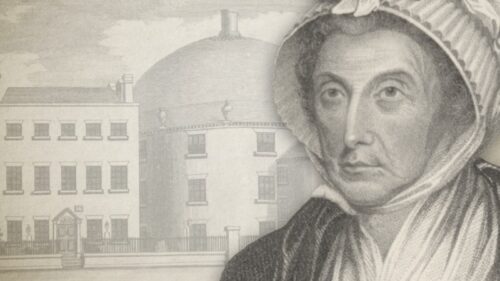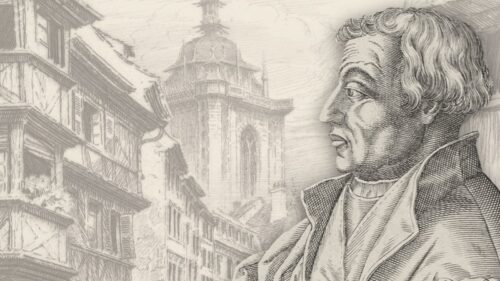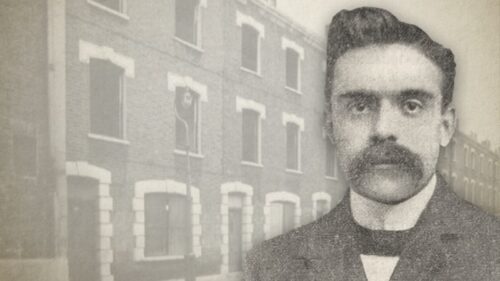-
The “Old School Baptists” In America
Gospel Standard Magazine No. 102 — June, 1844 — Vol. 10, Pages 161-165 [The letters below were written to our departed friend W. Gadsby, and would have appeared earlier but from the pressure of other matter. Mr. Booth's letter will, we think, be found to contain an interesting account of our American brethren. We do not mean to say that we approve of all that is contained in it; but we did not consider ourselves at liberty to alter or omit. It is to the "Old School Baptists"[1] that James Osbourn, whose experience we have reviewed, belongs; and in several of his works which we have read, (and we believe we possess them all,) he frequently speaks of them, and seems to be fully united…
-
Title Page And Preface
Theological Dictionary by Charles Buck ------------------------------------------------------------ Charles Buck (1771-1815) was an English Independent minister, best known for the publication of his “Theological Dictionary”. The first edition was printed in 1802, followed by fifty reprints. Buck writes:[1] "I had been for some time employed in preparing for the press my Theological Dictionary, a work which cost me much labour day and night, and no one to assist me, except now and then the bare copying of an article. The vast variety of books to be consulted, the discriminations to be made, the difficulty of seizing those accurate definitions I wanted, the various opinions of authors on the same subject, the including every article in Ecclesiastical History, Theology, and Morals, rendered it rather a formidable work for…
-
Robert Oliver And The Twists And Turns Of Historical Revisionism
In July, 1988 an anonymous article appeared in the Banner of Truth magazine, surprising and shocking many readers. It was a fierce attack on the person and testimony of William Huntington, known affectionately as ‘the Immortal Coalheaver’. The article, which followed a similar attack on John Gill by Robert Oliver the previous year, was planned to start off what the BOT calls an ‘important controversy’ to warn readers against the traditional Calvinism of these men. In Huntington’s case (though Gill’s was not dissimilar) the BOT were faced with two difficulties. First, it was obvious that Huntington had the largest congregation in London during the latter part of the 18th century and was the most popular and most read Calvinistic preacher and evangelist of his day.…
-
Kiffin, Knollys and Keach: Rediscovering our English Baptist Heritage
The news that Carey Publications were to publish the lives of these three 17th century Baptists filled me with a feeling of hopeful expectancy. The three Ks have aided my own understanding of the ways of God immensely and I know from my correspondents that there is an awakened, wide-spread interest in them. Michael Haykin’s book thus comes at a most appropriate time. My expectancy was dampened by Robert Oliver’s foreword in which he takes up his pet theme, Hyper-Calvinism, and back-projects it onto the teaching of Kiffin and Co., arguing that they were against it, whereas they had nothing to do with it, or rather, nothing to do with this modern controversy which is forced onto the churches, leaving havoc and destruction in its…
-
Tobias Crisp (1600-1643): Exalter Of Christ Alone
Tobias Crisp served the Lord during a time of civil war and ecclesiastical unrest. There were threats of a papal take-over in the Established Church and Amyraldianism, Arminianism, Grotianism and Socinianism were flooding into the country to water down the faith inherited from the Reformers and defended by the Puritans. Crisp found these new religions false as they did not exalt Christ. Entering the ministry as an unconverted man This ‘holy and judicious’ person, as Augustus Toplady describes Crisp, was born into a family of London sheriffs and aldermen and was educated at Eton, Cambridge and Oxford, finishing his studies by gaining a D.D.. He married Mary Wilson, an Alderman’s daughter, and the couple were blessed with thirteen children. He was ordained Rector of Brinkworth…
-
Six Hundred Hyper-Calvinist Baptist Churches
High-Calvinism[1] may be defined as that set of teachings which denies duty faith, rejects the free offer and renounces the moral law as a rule of conduct for the believer's life. Stated positively, High-Calvinism is that set of teachings which promotes the preaching to all sinners of a full, free and fruitful gospel. By a full gospel, I mean it is the good news of the three branches of the gracious covenant—the electing love of the Father, the redeeming grace of the Son and the sanctifying power of the Holy Spirit. It is on this basis we reject the pernicious doctrine of the free offer. By a free gospel, I mean there are no conditions or requirements placed upon the sinner in order for him/her…











